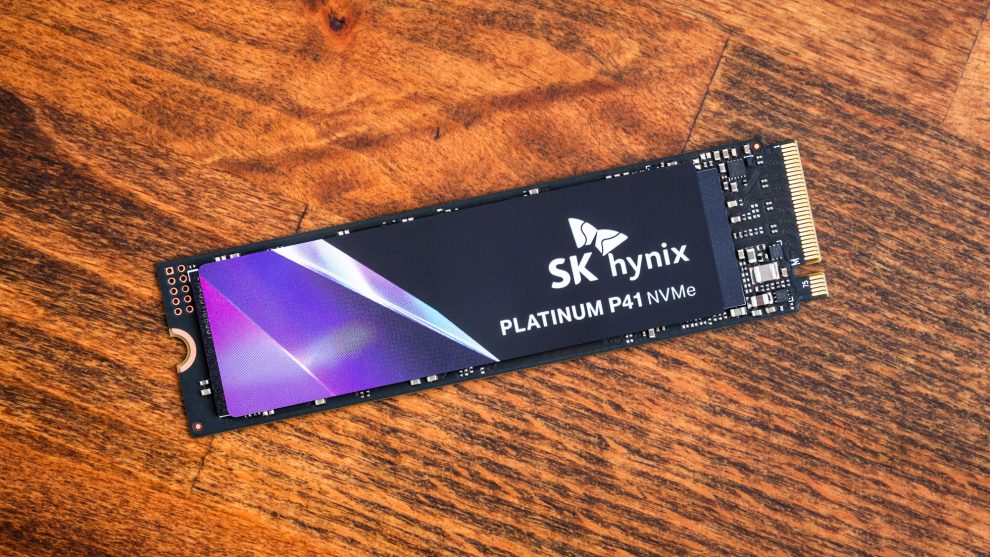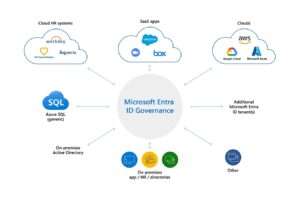The race for faster, more powerful artificial intelligence (AI) hardware has taken a significant leap forward with the introduction of the PCB01 SSD by SK Hynix. This cutting-edge solid-state drive, specifically designed for on-device AI processing in personal computers (PCs), boasts industry-leading specifications and promises to revolutionize how AI interacts with everyday computing tasks.
AI on the Rise: The Growing Need for Specialized Hardware
Artificial intelligence is no longer confined to the realm of science fiction. From facial recognition on smartphones to voice assistants in our homes, AI is increasingly integrated into our daily lives. However, running complex AI algorithms on traditional computers can be slow and inefficient. This is where specialized hardware like the PCB01 comes in.
Traditional computer architectures were not designed for the specific demands of AI workloads. AI tasks require rapid data movement between the processor (CPU) and memory (DRAM). This data transfer process can become a bottleneck, significantly slowing down AI performance.
Breaking the Bottleneck: How the PCB01 Optimizes AI Processing
The PCB01 tackles this bottleneck head-on by offering several key innovations:
- Fifth-Generation PCIe Interface: This cutting-edge interface allows for blazing-fast data transfer speeds, significantly reducing the time it takes to move data between the SSD and the CPU.
- Industry-Leading Sequential Read/Write Speeds: The PCB01 boasts sequential read speeds of up to 14 gigabits per second (Gbps) and write speeds of up to 12 Gbps. This is a significant improvement over traditional SSDs and translates to faster processing of large AI datasets.
- Single-Level Cell (SLC) Caching: The PCB01 incorporates SLC caching technology, which reserves a portion of the storage for faster data access. This allows for rapid retrieval of frequently used AI data, further optimizing performance.
- On-Device AI Processing: Unlike traditional SSDs that focus solely on storage, the PCB01 goes a step further. It integrates functionalities that enable basic AI processing directly on the drive, bypassing the CPU for specific tasks. This offloads some of the workload, further enhancing overall AI performance.
Beyond Speed: The PCB01’s Additional Benefits
While raw speed is a critical factor, the PCB01 offers additional benefits for AI computing:
- Reduced Power Consumption: The advanced design of the PCB01 allows it to operate with lower power consumption compared to traditional SSDs. This is important for portable AI PCs and environmentally conscious users.
- Improved System Stability: The faster data transfer speeds and optimized data access contribute to a more stable and reliable computing environment for running complex AI tasks.
- Potential for Broader Applications: While initially targeted at AI PCs, the PCB01’s capabilities could benefit other high-performance computing applications like data analytics and video editing.
A Glimpse into the Future: What the PCB01 Means for AI Adoption
The introduction of the PCB01 signifies a significant shift in how we approach AI on personal computers. Here’s what this innovation could mean for the future:
- Democratization of AI: The PCB01, along with future advancements in AI hardware, could make it easier for developers to create and integrate AI into everyday applications, fostering wider adoption of AI technology.
- Rise of the AI PC: The PCB01 paves the way for a new generation of AI-powered PCs specifically designed to handle demanding AI workloads. These machines could become essential tools for professionals working with AI, data analysis, and machine learning.
- Enhanced User Experience: Faster and more efficient AI processing could lead to smoother user experiences in a variety of applications, from facial recognition software to voice assistants and intelligent search engines.
Challenges and Considerations: The Road Ahead for AI Hardware
While the PCB01 marks a significant advancement, there are still challenges to overcome in the development of AI hardware:
- Cost Considerations: Cutting-edge technologies often come at a premium. The cost of the PCB01 and other specialized AI hardware needs to be balanced with affordability to ensure widespread adoption.
- Software Optimization: AI hardware advancements need to be complemented by software development that can fully utilize the capabilities of these powerful new components.
- Balancing Power and Efficiency: Striking the right balance between processing power and energy efficiency remains crucial for mobile AI applications and sustainability considerations.
Conclusion: A New Era for AI and Computing
The SK Hynix PCB01 SSD is a game-changer for AI computing on personal computers. Its groundbreaking speed, efficient design, and on-device processing capabilities pave the way for a future where AI becomes a seamlessly integrated part of the PC experience. While challenges remain, the PCB01 marks a significant step toward a future where AI technology is accessible
















Add Comment